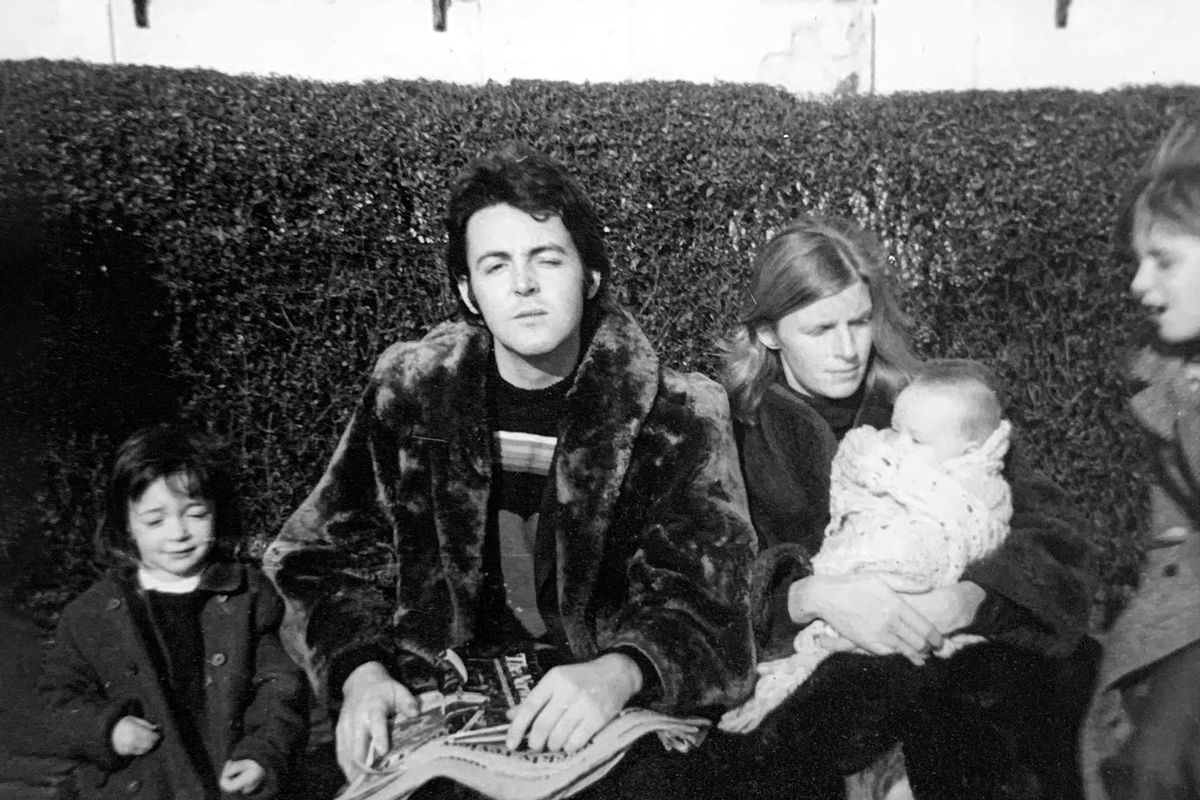Allan Kozinn and Adrian Sinclair's "The McCartney Legacy: Volume 1, 1969-73" is a triumph. Masterful in scope and full of rich detail, the first volume on Paul McCartney's post-Beatles career, out Tuesday from Dey Street Books, kicks off the authors' ambitious literary biography series in fine style.
Over the years, Paul McCartney has been the subject of numerous biographical studies, while remaining frustratingly elusive in terms of sharing the nature of his interior life. Kozinn and Sinclair sagely begin their book with an epigraph in which McCartney himself gets to the heart of the matter. "I'm very good at forgetting who I am," he admits, "because as far as I'm concerned Paul McCartney is a name I was given at birth, and at the beginning of the Beatles he split off into a celebrity, and I remained [as me]. . . . When you talk about Paul McCartney, I talk about the guy inside me, but you're talking about him—the guy who goes onstage and makes records and stuff."
There it is: "The guy who goes onstage and makes records and stuff." In the space of a throwaway phrase, the artist who, along with John Lennon, ignited a musical fusion that changed the world, attempts to normalize his achievements. Fortunately for us, Kozinn and Sinclair won't let him get away with it. With "The McCartney Legacy," the authors perform a vital function, affording readers with the first in-depth study of McCartney's transition from Beatle Paul into solo superstardom.
Kozinn and Sinclair's painstaking assessment of McCartney's bout with depression and creative angst in the wake of the Beatles' demise establishes a bedrock for understanding the musician's greatest accomplishment. The manner in which McCartney redefines himself in the post-Beatles world is remarkable, by any measure, and Kozinn and Sinclair trace the ways in which the singer-songwriter redoubles his courage and gathers his ambitions to become one of the most successful acts from the 1970s through the present day.
The McCartney Legacy depicts McCartney's initial, tentative steps with his homespun, eponymous debut album and the indie favorite "Ram" through the early days of Wings. In one of his final interviews, Lennon offered a good-natured hat tip for his former mate's daring effort to imagine forming a new group after the Beatles. "I kind of admire the way Paul started back from scratch, forming a new band and playing in small dance halls," said Lennon, adding, with a characteristic barb, that "I kind of admire the way he got off his pedestal—now he's back on it again, but, I mean, he did what he wanted to do."
In their finest moments, Kozinn and Sinclair afford us with a glimpse into McCartney's unvarnished determination to transform Wings into a bona fide hitmaking unit. "The McCartney Legacy" concludes with the story of "Band on the Run," the mega-selling album that set his post-Beatles career on a trajectory that would establish him as a leading voice and songwriter for a new generation beyond the Fabs.
With "Band on the Run," the authors point out, McCartney finally seemed to come to grips with the interpersonal tensions that his incredible talent invariably wrought: On the one hand, he wanted desperately to be a member of the band, the kind of person who could accept input from all comers. But the brutal truth, Kozinn and Sinclair write, was that "Paul was most comfortable having both the first and last word." When he initially formed Wings, McCartney subscribed to the latter, highly idealized view.
After "Band on the Run," an album that saw two members of the group depart because of his notoriously controlling ways, McCartney knew better. Simply put, Wings could never be "a band of equals." McCartney's creative energies were simply too fecund — and his musicianship too prodigious — to exist among such petty constraints. In "The McCartney Legacy," their masterful study of the artist's spectacular rise from the ashes of the Beatles, Kozinn and Sinclair bring McCartney's comeback story vividly to life.
Love the Beatles? Listen to Ken's podcast "Everything Fab Four."
You can catch Allan Kozinn and Adrian Sinclair live in conversation with Kenneth Womack on Wednesday, December 14, 2022 at the GRAMMY Museum ExperienceTM Prudential Center in Newark, NJ.
Read more
about Paul McCartney



Shares